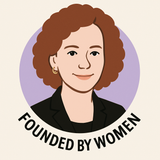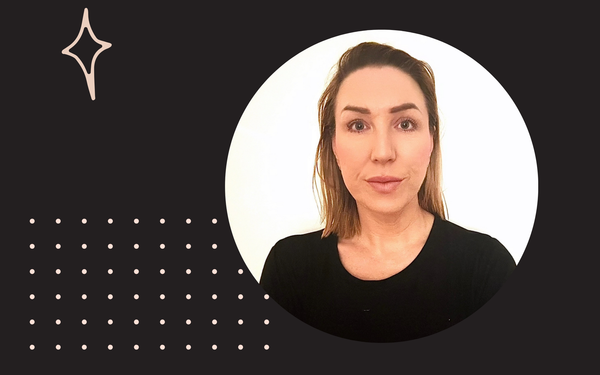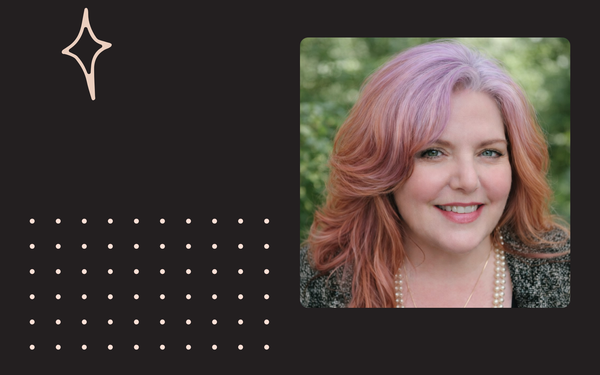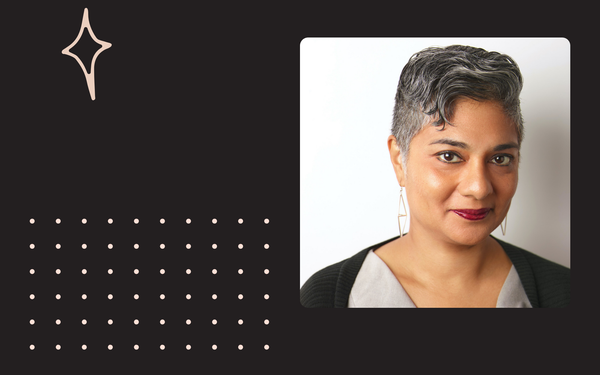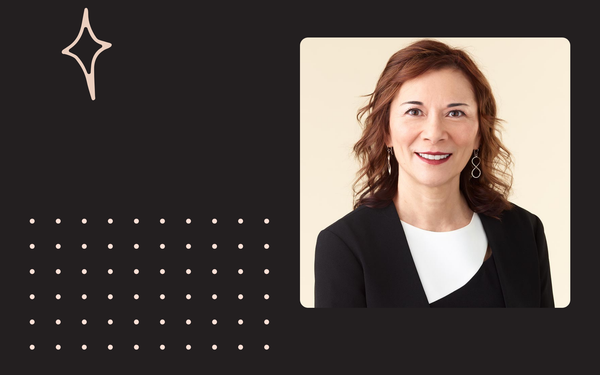From Tech Pioneer to Restorative Investor: How Laina Greene Built Angels of Impact to End Poverty in Unity with Women
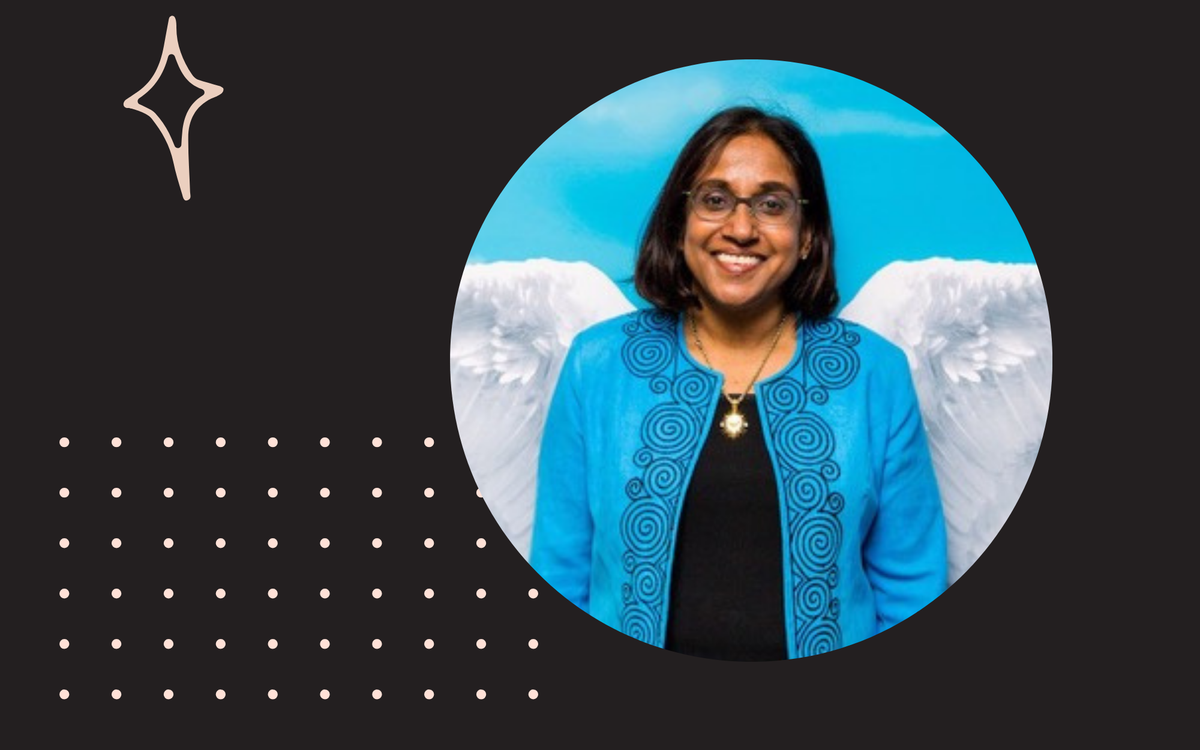
Laina Greene's path to impact investing began in the male-dominated tech world of Singapore, where as one of the early female techpreneurs of color, she faced significant challenges building a profitable business while struggling to raise capital and secure fair valuations. This lived experience of systemic barriers, combined with her Baháʼí Faith commitment to service and her parents' emphasis on giving back, ultimately led her to discover a powerful new approach to investing.
In this revealing Q&A, Laina shares how her journey from telecommunications work at the United Nations to founding successful tech companies in Singapore and Silicon Valley prepared her for her most impactful venture yet. In 2016, she co-founded Angels of Impact, a "charitable purpose" enterprise dedicated to investing in women-led, community-based, and sustainable enterprises with the bold mission to "end poverty in unity with women."
What sets Angels of Impact apart is its focus on the "missing middle" enterprises—too large for microfinance and too small for impact investing. Through their holistic, relationship-based approach, they prioritize women and Indigenous-led entrepreneurs with deep community roots and lived experiences, using restorative and regenerative models that ensure value flows back to the communities where it's created.
Laina candidly discusses the biggest systemic challenge in impact investing: the fundamental misalignment between profit-seeking and meaningful impact. She explains why she often prefers the term "restorative investing" and addresses the unconscious bias that women of color face in the finance industry. Her success story of Color Silk in Cambodia—a social enterprise that has achieved financial independence while preserving cultural heritage—demonstrates the ripple effect of her approach.
For women of color entrepreneurs facing similar barriers, Laina's advice is clear: don't let systemic challenges hold you back. Her story proves that with conviction and creativity, it's possible to find alternative funding paths and create business models that truly serve both people and planet.
Question 1: From Tech Entrepreneur to Impact Investor
After 30+ years in telecom and clean tech, including founding your own tech company in Singapore in 1996, you pivoted to focus on impact investing and social entrepreneurship. What was the turning point that made you realize you wanted to dedicate your life to ending poverty rather than traditional business success? How did your experience as "one of the early female techpreneurs in Singapore" shape your understanding of the challenges women entrepreneurs face?
The turning point wasn't a single event, but a series of them, rooted in both my personal experiences and my upbringing. My journey culminated in the male-dominated tech world in Singapore, where, as an early female founder of color, I faced significant challenges. Despite building a profitable business, I found it incredibly difficult to raise capital and secure fair valuations. This experience cultivated a deep empathy for other women entrepreneurs struggling with the same systemic barriers.
While my initial investments focused on women in tech, the actual pivot toward impact investing happened after I moved to Indonesia. Living there for two and a half years, I learned about social enterprises from organizations such as Unltd Indonesia, Ashoka, and Acumen. Reading Professor Muhammad Yunus's book, “Creating a world without poverty", solidified my new perspective on how to invest in the world I wanted to see.
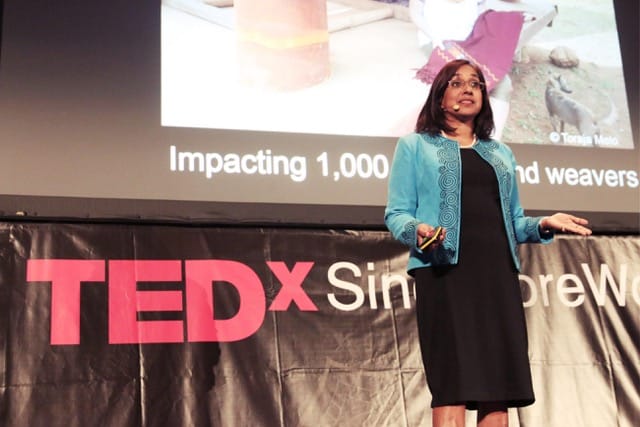
One could say that this path was paved by my own lived experience as a tech entrepreneur and the profound influence of my parents, who always emphasized giving back to society. My commitment to serving humanity is also deeply rooted in the Baha’i Faith. It's no surprise that when I discovered impact investing, I was immediately drawn to its mission.
Question 2: Building Angels of Impact with a Mission
Your organization supports women and Indigenous-led community-based enterprises across the Asia Pacific, with the mission to "end poverty in unity with women." How do you identify and evaluate these enterprises for funding? Can you share a specific success story, like Vanntha Ngorn's Color Silk in Cambodia, that exemplifies the impact your model can achieve?
Angels of Impact's mission to "end poverty in unity with women" guides our investment philosophy. We identify and evaluate enterprises using a holistic, relationship-based approach that goes beyond traditional financial metrics. We focus on enterprises that are:
- Women- or Indigenous-led: We prioritize leaders with deep community roots and lived experiences.
- Restorative and Regenerative: Our model ensures value flows back to the communities where it's created, fostering long-term sustainability.
- Balancing Profit and Purpose: We seek businesses with robust, sustainable models that can generate both financial and social returns.
A powerful example of our model's impact is Vanntha Ngorn's Color Silk in Cambodia. This enterprise empowers local women weavers, providing them with fair wages, skills training, and stable market access for their traditional crafts. By supporting Color Silk, we not only help lift women out of poverty but also preserve the rich cultural heritage of Cambodian silk-making. The success of this partnership demonstrates the ripple effect of our work—strengthening livelihoods, empowering families, and restoring dignity through meaningful work. Having received two rounds of financing from us and benefited from our technical assistance programs, her business is thriving. It has expanded into other areas of Cambodia, making her no longer reliant on outside funding.
Question 3: Overcoming Systemic Barriers as a Woman of Color
As you've noted, "women of color empowering other women of color run into the same unconscious biases." What specific systemic challenges have you encountered in the impact investing space, and how do you work to overcome them? What advice would you give to other women of color who want to create change through entrepreneurship or impact investing but face similar barriers?
The biggest systemic challenge in this space is a fundamental misalignment of priorities. While impact investing was designed to create positive change, it has primarily shifted to prioritize scale and profit over meaningful impact. As reports from the Monitor Group and the GIIN have shown, many 'impact investors' are still looking for market-rate returns, not solutions to poverty. For an enterprise like Color Silk, which generates a profit but doesn’t fit the traditional venture capital model, it's a challenging sell, despite the profound social impact it creates.
I am often reluctant to even use the term 'impact investing,' preferring to call my work 'restorative investing,' a term I learned from Nwamaka Agbo, who champions restorative economics. Women of color who are committed to this impact-first approach are often not taken seriously. The finance industry already has its share of unconscious bias, and these biases are just as prevalent in impact investing. It has been a significant challenge to raise funds for Angels of Impact as a woman of color, but we are grateful for the supporters who believe in our mission.
My advice is simple: don't let these barriers hold you back. We need more women of color to develop more effective business models that help people and the planet thrive. If you believe in your vision, that conviction alone will help you find new ways to secure funding. In my early days as an entrepreneur, when banks wouldn't lend me money, I convinced customers to finance me instead. I had to prove the quality of my work first, but I was able to find a path forward outside the traditional system. The world is realizing that business as usual no longer works. So, be bold and create your own path.
Are you a woman leader with an inspiring journey to tell? Founded by Women is on a mission to elevate and amplify the voices of women making an impact.
If you're breaking barriers, driving change, or paving the way for others, we’d love to feature your story. Get in touch with us today!
👉 hi@foundedbywomen.org
